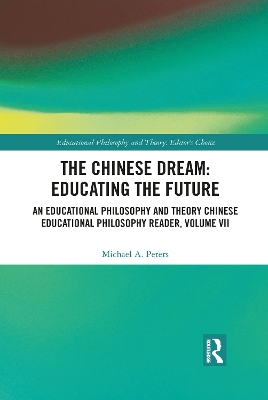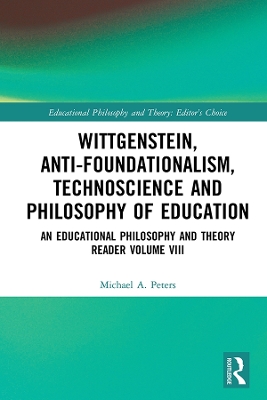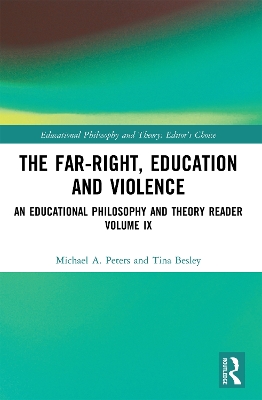Educational Philosophy and Theory: Editor's Choice
3 total works
This edited collection is based on a series of articles written by Michael A Peters as Editor-in-Chief of Educational Philosophy and Theory to explore the concept of The Chinese Dream first introduced by President Xi in 2012. This seventh volume in the Editor's Choice series provides a philosophical and historical analysis of The Chinese Dream by analyzing its major intersecting narratives - liberal, Confucian and Marxist. With chapters covering higher education strategy, social governance, socialist rule of law, the US-China trade war, technological unemployment and the emergence of the Chinese techno-state, this volume also offers an introduction to Chinese philosophy and history, and its narrative re-crafting that presents China as a global power. The author calls this process and the emerging Chinese narratives 'Educating the Future'.
Wittgenstein, Anti-foundationalism, Technoscience and Philosophy of Education
by Michael A. Peters
This book is a collection of essays motivated by a "cultural" and biographical reading of Wittgenstein. It includes some new essays and some that were originally published in Educational Philosophy and Theory. The book focuses on the concept of “technoscience”, and the relevance of Wittgenstein’s work for philosophy of technology which amplifies Lyotard’s reading and provides a critique of education as an increasingly technology-led enterprise. It includes a distinctive view on the ethics of reading Wittgenstein and the ethics of suicide that shaped him. It also examines the reception and engagement with Wittgenstein’s work in French philosophy with a chapter on post-analytic philosophy of education as a choice between Richard Rorty and Jean-François Lyotard. Peters examines Wittgenstein’s academic life at Cambridge University and his involvement as a student and faculty member in the Moral Sciences Club. Finally, the book provides an understanding of Wittgensteinian styles of reasoning and the concept of worldview. Is it possible to escape the picture that holds us captive? This constitutes a challenging introduction to Wittgenstein’s work for academics, researchers and postgraduate students in the fields of education, technology and philosophy.
The Far-Right, Education and Violence
by Michael A. Peters and Tina Besley
In the last decade the far-right, associated with white nationalism, identitarian politics, and nativist ideologies, has established itself as a major political force in the West, making substantial electoral gains across Europe, the USA, and Latin America, and coalescing with the populist movements of Trump, Brexit, and Boris Johnson's 2019 election in the UK. This political shift represents a major new political force in the West that has rolled back the liberal internationalism that developed after WWI and shaped world institutions, globalization, and neoliberalism. It has also impacted upon the democracies of the West. Its historical origins date from the rise of fascism in Italy, Germany, and Austria from the 1920s. In broad philosophical terms, the movement can be conceived as a reaction against the rationalism and individualism of liberal democratic societies, and a political revolt based on the philosophies of Nietzsche, Darwin, and Bergson that purportedly embraced irrationalism, subjectivism, and vitalism. This edited collection of essays by Michael A Peters and Tina Besley, taken from the journal Educational Philosophy and Theory, provides a philosophical discussion of the rise of the far-right and uses it as a canvas to understand the return of fascism, white supremacism, acts of terrorism, and related events, including the refugee crisis, the rise of authoritarian populism, the crisis of international education, and Trump's 'end of globalism'.


